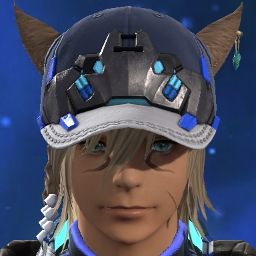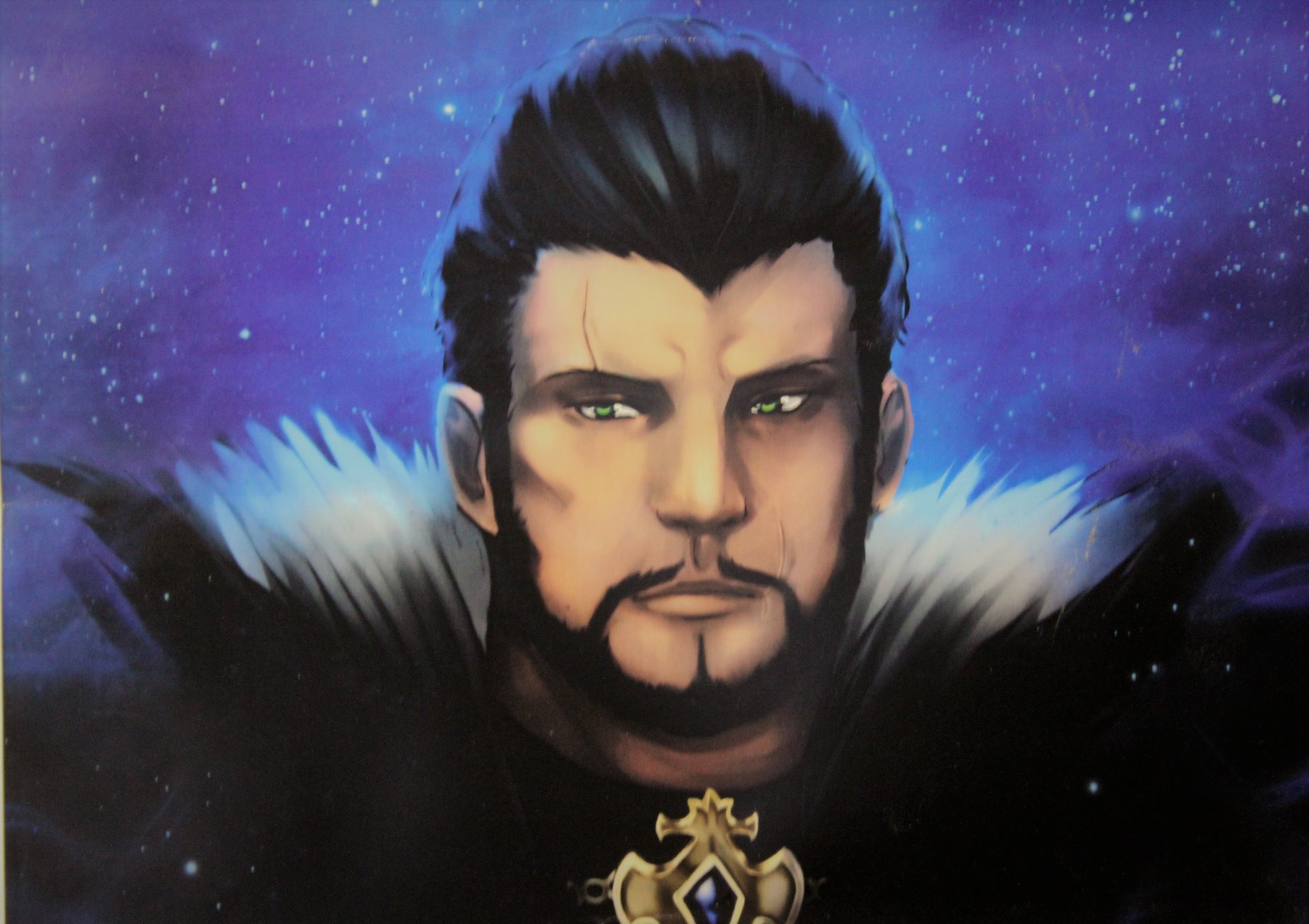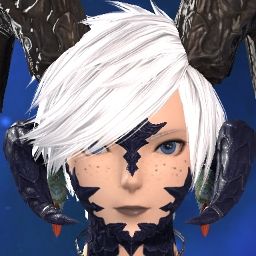-
08-02-2022 06:28 AM #711Player

- Join Date
- Feb 2019
- Location
- Ul’dah
- Posts
- 822
- Character
- Eara Grace
- World
- Faerie
- Main Class
- Paladin Lv 100
(9)
-
08-02-2022 07:22 AM #712Player

- Join Date
- Nov 2017
- Posts
- 14,034
- Character
- Aurelie Moonsong
- World
- Bismarck
- Main Class
- Summoner Lv 90
So did the English script fail to clarify that they weren't truly resurrected, or make it clear by having Emet state it in a different line?
I've meant to respond to this specific claim when I saw you post it before, but the discussion moved past it.
Just because it doesn't say in the exact same line between Japanese and English that they're only half-alive, the fact is still conveyed within that scene, and that's all it needs.(8)
-
08-02-2022 08:02 AM #713
It's more that the Mothercrystal cutscene clarifies what Hydaelyn adds to the Azem crystal and what that will allow it to do, so when the UT cutscene comes up you're already aware that Emet and Hyth weren't resurrected they were merely called from the aetherial sea and given form.
Emet is also a lot more direct when he answers Meteion saying, "I'm just a dead man on the verge of disappearing." But, like I said, even in EN he says he's a "half-faded soul of the dead" so there's already acknowledgment he hasn't been resurrected there. His saying that he doesn't wish to live again/kept alive by Hydaelyn's magic is a consistent line, but without the previous context can be confusing. It's why I wanted to clarify that he didn't 'kill himself', he was and is already dead throughout that whole sequence. He just chose not to remain there any longer than necessary. (May be splitting hairs for some, but I've seen plenty of people confused by this!)The forces I have control over as Hydaelyn are those of stagnation, of calmness. That which steadies life, you could say it like that.
Combined with the power of Azem you should be able to call that which is hidden and give form to it. But it is limited.
Even those who don't even have a body anymore will answer your call...just like the souls in the Aetherial Sea.
But you need to be aware of one thing. Azem's art is not simple magic. Rather, it is based on your own will that will only take form once you carry a heartfelt wish within you.(7)
-
08-02-2022 01:36 PM #714Player
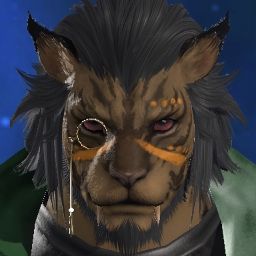
- Join Date
- Sep 2013
- Location
- The Hermit's Hovel
- Posts
- 3,685
- Character
- Trpimir Ratyasch
- World
- Lamia
- Main Class
- Gunbreaker Lv 100
Where do you guys find time to actually play the game with this gish galloping? Eesh.
The Sundering is not portrayed as a noble act; it is portrayed as a grim necessity, an "I did what I had to do" moment. Venat's suffering is portrayed as a noble thing, and given what she sacrifices and sacrifices for, I can't really fault that.
We can argue whether or not it was necessary all day long, though arguing to the contrary is heavily rooted in speculation. Regardless, any reality in which the PC exists must necessarily have the Sundering take place whether you think it was right, necessary, both, or neither.
It's as funny as it is frustrating that back in Shadowbringers there was so much hullabaloo about "nuance" and "moral greyness," but then our mentor reveals she's just a person and not a perfect angel, who made hard choices with what information she had available, and is demonized for it. It's like kids learning their parents are no more flawless or wise than they are and feeling betrayed by their own perception, in a way.
I happen to agree that it was a necessity, if a grim one, something I can probably stomach easier because I'm not enamored with any of the Ancients or their civilization and am philosophically opposed to their ideal of perfection. Just me though.(14)Trpimir Ratyasch's Way Status (7.2 - End)
[ ]LOST [ ]NOT LOST [X]RAGING OVER DEMIATMA RNG
"There is no hope in stubbornly clinging to the past. It is our duty to face the future and march onward, not retreat inward." -Sovetsky Soyuz, Azur Lane: Snowrealm Peregrination
-
08-02-2022 06:25 PM #715Player

- Join Date
- Aug 2019
- Posts
- 334
- Character
- Floria Aerinus
- World
- Balmung
- Main Class
- White Mage Lv 80
Sorry to be a weirdo and dig this up from a couple weeks ago, but I wanted to explain a little bit why I was so pleased by the Omega quest, Rulakir, since it feels like we're kinda on a fundamentally different page about it. I think you're more looking at it from the perspective of how much it changes the canon and the degree to which it "counterbalances" the strangeness of vanilla EW's narrative (admittedly not much; it is just a single optional quest), whereas I'm looking at it more as a pivot from the framing and thematic presentation of vanilla Endwalker, and what that represents.
I'll focus on the final Venat-related scene here since that seems to be what you're passionate about compared to the thematic undercurrent. In this post, it feels like you haven't really given much bearing to the actual way the scene is presented, just the individual beats in isolation; The Watcher being a Hydaelyn-simp, Omega being sort of reductive about the idea of 'strength', etc. But seems like sorta missing the forest from the trees. Like, to break the conversation down, it goes:
1) The Watcher monologues about how much he believed in Venat's mission, how guilty she felt about what she needed to do, how amazing the world she's created is, etc. Basically just echoing the tone of the rest of Endwalker.
2) Omega counters by pointing out that she made life much worse for people on an individual level, how you could just as easily argue that Hermes helped mankind by creating his test, and that she kinda completely screwed Emet and the other Unsundered over with her plan (while still reiterating that he did do a lot of murders). Basically, a quick rundown of a lot of the anti-Venat arguments that appeared here in the early response to EW.
3) After you give your opinion, The Watcher basically says that there is no objectively correct answer, and that his feelings are just that of one person. And that you should try to listen to and accept other people's feelings and grievances rather than simply dismissing them as invalid.
Setting aside the snarky callout of everyone involved in these arguments at the end there, what's important here is how it departs from the tone set by vanilla Endwalker. As has been pointed out repeatedly, Endwalker doesn't really allow narrative room for the suggestion that what Venat did might not have been justified; the Sundering is presented as a severe and destructive act, 'sinful' in a sense, but the framing nevertheless makes it absolutely clear that you're supposed to understand it as ultimately necessary and for the best. Every character and quest log entry reiterates this, and it's never questioned if it was 'worth it' on its own terms. But here, the story pivots, and allows it to be challenged by both an NPC and the player in a way where it's presented roughly equally to the alternative.
I think it's important to try to keep a sense of perspective here. This sort of thing rarely happens; writers are very stubborn people who pour a lot of themselves into their work. If there's a fan outcry over a story choice in a franchise, what usually happens is that it's either ignored, or addendums (or very occasionally, outright retcons) are made to the original story to address the issue without engaging with the criticism meaningfully, usually authored by someone different. This happens in WoW all the time-- When a plot point or framing of a character or event isn't popular, they awkwardly drop it like a hot rock, stop talking about it, and do something else instead. What's rare, and in my opinion makes this encouraging, is a direct concession to criticism within the text, where the writer looks directly at the complaints and acknowledges them as comparably valid to their own original thesis.
Like, I admit I was maybe being a little extreme in saying that it 'fixes' Endwalker's thematic and tonal problems, but it does feel like it at least legitimizes a negative response to it in-universe. It is now 'valid' for the WoL to think Venat was wrong; that ground has been conceded, even if it doesn't fix the sense of being railroaded into loving her in the original work. (And yeah, the codex entry does kinda contradict that, but it's worth remembering that it came out first and was probably written just after the release of the game, so...)
There are definitely ways it could have been better, but I really do wonder what some people's expectations are here, you know? From the beginning, it's been obvious that the main scenario team isn't going to go back and literally rewrite a finished game, or turn around and directly contradict it by making Venat an explicit villain in the post-expac content. That sort of thing just doesn't happen. It still bums me out when I think about the repercussions of Endwalker on the setting and what could've been, but what's done is done, and all one can reasonably hope for at this point is for the writers to say "I hear you and recognize there was an issue" and to make conciliatory gestures with the story going forward. And like, in that regard, I don't think it's wrong to take this quest as at least a potentially positive sign? Especially since we still have a fair bit of EW 'epilogue content' to get through.
For all their flaws, this is the same writing team that created Shadowbringers, the success of which was the reason I was so let down by Endwalker to begin with. I do feel like I owe them a little good faith in response to a step in the right direction. It does kinda feel like an increasing amount of people in these threads are completely despondent about the future of the story and only really here for the catharsis of complaining about EW, and though I obviously do get it, it doesn't really feel productive for me personally at this point.(11)Last edited by Lurina; 08-03-2022 at 01:24 AM.
-
08-02-2022 06:35 PM #716Player
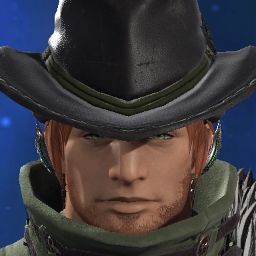
- Join Date
- May 2014
- Location
- The Interdimensional Rift
- Posts
- 3,586
- Character
- Vicious Zvahl
- World
- Excalibur
- Main Class
- Machinist Lv 100
I've always had an incredible amount of time for my favorite pastime, video games, and in general I play the game almost everyday (though this has waned this summer between Elden Ring and patch lull). Forum perusal only takes a couple of hours. /shrug I often replay the story, sometimes for extra swag!
*ahem* Anyway...
Re: It wasn't portrayed as a noble act etc.
Like hell it wasn't! It was given an entire damn metaphor scene which dodged all of its immediate specifics, complete with rousing demagoguery. By a literal demagogue. Which went on to try and impart more of an importance on her suffering than those she assaulted. Which was then followed up by a literal Y'shtola quote being, "Far be it from me to refute Hydaelyn's own words... Yet even if her actions were neither kind nor just, we can give them a nobler meaning."
There isn't any speculation to be had in the contrary. Within story specifics(the, to get our current narrative, duh), sure, but the issue arises with the setting we were given for the Ancients. We were given a race of people who could create anything with a snap of their fingers. To think that another intellect the equal of Hermes could not arise from it to create an Anti-Meteion is like believing Einstein is the only intellect of note in our own history.
So...
Regarding your quips about SHB being lauded for nuance, whereas the same folks aren't lauding Endwalker... It's like you don't realize that Endwalker presented a morally grey anti-villain, and the rub isn't that she's morally grey. The rub is that she is morally grey. Grey as a storm cloud. Yet, rather than embrace that greyness. Rather than give our cast and narrative properly characterized reflections on it. Rather than have any of the cast take issue with it... Endwalker uses that cast to trumpet, "Nah, she's clean. It was for the best. Her words and actions aren't contradictions. We can say she was doing it for noble reasons, say what she did was noble. By the way, it became a prophecy thanks to the time loop. We should use Hydaelyn's words as a guide and lodestone for our hearts." They even had that nuanced villain from SHB jump on her hype train, both in Elpis and in Ultima Thule. He spent 12,000 years opposed to her. Where is the narrative cohesion?
In other words, FFXIV had pretty cut and dry villains up until SHB. They then dipped their toe in the nuance water. People were like hell yeah, good story good! Then, came Endwalker. From how they wrote this narrative and its cast, it's clear they wanted to go back to cut and dry. Of course, there's no way for them to do that now, because they've soaked their narrative with nuance. In short, they committed to backpedaling to try and avoid a common trope with Hydaelyn(Great Good was Evil all along). As well as get their narrative back to villains are villains, heroes are heroes.
It works for most folks, because most of XIV's playerbase weren't here for the nuance. They were here for the music, feels, pretty characters, colors, and WoW replacement. Endwalker does all of that gloriously, but it is also the first time that XIV's narrative has actually combatted its own logical progression. It suffers so much for that, but people do not care. They consume.(9)
(Signature portrait by Amaipetisu)
"I thought that my invincible power would hold the world captive, leaving me in a freedom undisturbed. Thus night and day I worked at the chain with huge fires and cruel hard strokes. When at last the work was done and the links were complete and unbreakable, I found that it held me in its grip." - Rabindranath Tagore
-
08-02-2022 08:13 PM #717Player

- Join Date
- Jul 2015
- Location
- Amaurot
- Posts
- 4,449
- Character
- Tristain Archambeau
- World
- Cerberus
- Main Class
- Black Mage Lv 90
For my part, I don't think it's at all necessary to try and turn her into an explicit villain at this point. I never wanted that out of her, it wasn't how I expected they'd deal with her, as they had plenty of scope to deal with her as a well-intentioned ideologue (e.g. Yunalesca), which is what I think we got in large part anyway, regardless of the narrative treatment surrounding her in 6.0.
My far greater issue with it was the way they attempted to legitimise the sundering. It had to happen for the story to take place as it did, which I accept. What I am far less fond of is the suggestion that, over and above this, it was either necessary (i.e. the ancients would not find a way to deal with it even if told the full truth; I don't think the story even managed to make this case) or the notion that it was the best possible outcome (the twaddle about "utopias", "perfection", strawmen to this effect, etc.), coupled with not really depicting what it entailed.
They somewhat walked back the former in the Q&A, by stipulating it was ultimately a function of her beliefs, and sort of ameliorated the latter by depicting it, albeit in another IP... but to be frank, I'd like to see something a bit firmer in-game, even if it amounts to a codex entry clearing it up a bit, or something along those lines. Something quite different to what we actually got in the entry about her, in the self-same codex (with the unfortunate insinuation it was authored by the MC), but I'll take your point that it was probably written just post-release. While I wouldn't mind an AU (especially as it'd be the only opportunity to see more of their world) it isn't essential to me as it is but one way of achieving the same thing.
More importantly, what I would like is for them to avoid utilising any remaining story arcs tangential to the ancients to try double down on their treatment as being doomed no matter what, or a continuation of the "aren't they a bit scary?" side glancing, and while the Omega quest certainly does suggest they've learnt from their mistakes (particularly in allowing for the character to have varied perspectives on a situation, even where they benefited), it remains to be seen how Pandaemonium and Aglaia conclude, as these are epilogues to the 6.0 story. For all my other issues with the game and wish that this wasn't the story we ended up getting, I am giving them the benefit of the doubt, but I won't lie - this is in a very tempered and muted sense.(9)Last edited by Lauront; 08-02-2022 at 08:56 PM.
When the game's story becomes self-aware:

-
08-02-2022 08:43 PM #718
I really get the feeling that for some players Venat would have only been fine if she was pure evil. That they could say that we were "stupid" for believing in her and that she did temper the WoL. Yet instead of making her totally good or totally bad they made her grey.
Maybe I am wrong with these thoughts but honestly seeing how even in Shadowbringers the tone got harsher on the forum, I really believe that some just wanted the "I told you so" moment in this expansion. That SE would use the trope of "God was evil the whole time".
I really love what they did with the situation. They could have easily left the Ascians where they were in ARR. Evil entities that we kill. So liking those would simply mean that you like the evil guys without much behind it. Yet they gave them a background, even showed us their old time and made the WoL connect to them. They made these characters into good written villians. Instead of being angry that SE dared to make Venat/Hydealyn into a more grey character, be happy that they took their time to give your favorite characters a good story.
So just like someone not liking Emet has to accept that their character dramatically reaches towards him, you have to accept that the WoL is also fine with Venat.(9)Last edited by Alleo; 08-02-2022 at 08:48 PM.
-
08-02-2022 09:38 PM #719Player

- Join Date
- Aug 2019
- Posts
- 334
- Character
- Floria Aerinus
- World
- Balmung
- Main Class
- White Mage Lv 80
It's been said many times before at this stage, but it bears repeating that a lot of these "is the Sundering justified/necessary" arguments feel a bit silly to me because FFXIV is a fantasy setting, and like most fantasy settings, it is built upon contrivance rather than any hard logic or rules. It could become necessary to enchant our weapons with toothpaste in the next patch if a portal to the candy dimension opens.
Though the situation is vague enough that you can build an argument on that basis, it is ultimately not a dubious thing to happen because it's mechanically unjustified within the fiction. It's dubious because the writing team consciously chose to create a scenario in which the only way the world could be saved was through the wholesale extermination of millions of people, and then encouraged us to view that extermination as a moment of necessary growth for civilization. The story asks you to abstractly dehumanize a group of humans as unfixably broken people that must be cast aside for the greater good for a combination of cultural and biological reasons.
I understand what they were going for, but it is creepy.
The "utopia will remove life's luster and make people lose their will to live eventually!" stuff still bothers me immensely, especially noticing that theme more in Ishikawa's earlier writing - like the whole concept of the Allagan Empire being prosperous and peaceful for too long, and so becoming "decadent" and therefore evil. It's a cultural trope that doesn't really have any grounding in reality, tied up in misunderstandings of societal decay as something rooted in people getting too comfortable. Probably originating in myths spread by the church about the fall of Rome, where it all fell apart because they had too many orgies.(8)Last edited by Lurina; 08-02-2022 at 11:12 PM.
-
08-02-2022 11:58 PM #720
Looking at the kinds of craziness the Garleans devised to overcome their aetherial limitations, the notion that the unfathomably more powerful and knowledgeable Ancients couldn't overcome the dynamis hurdle if they actually knew about it is something that struck me as fundamentally absurd.
Fears of a "death by utopia" felt similarly absurd when they were founded off a single vague statement that one civilization supposedly eliminated sorrow only to drown in apathy...and I feel like that might end up aging even more poorly if we actually get to hear a more detailed account of how that came to be from a recreation of one of the Plenty's denizens in the 6.2 tribal quests
As many have stated before, if you're trying to justify basically destroying the world and mankind as one knows it, you need a really, really solid line of reasoning to make sit well with everyone in the long run.(8)



 Reply With Quote
Reply With Quote


